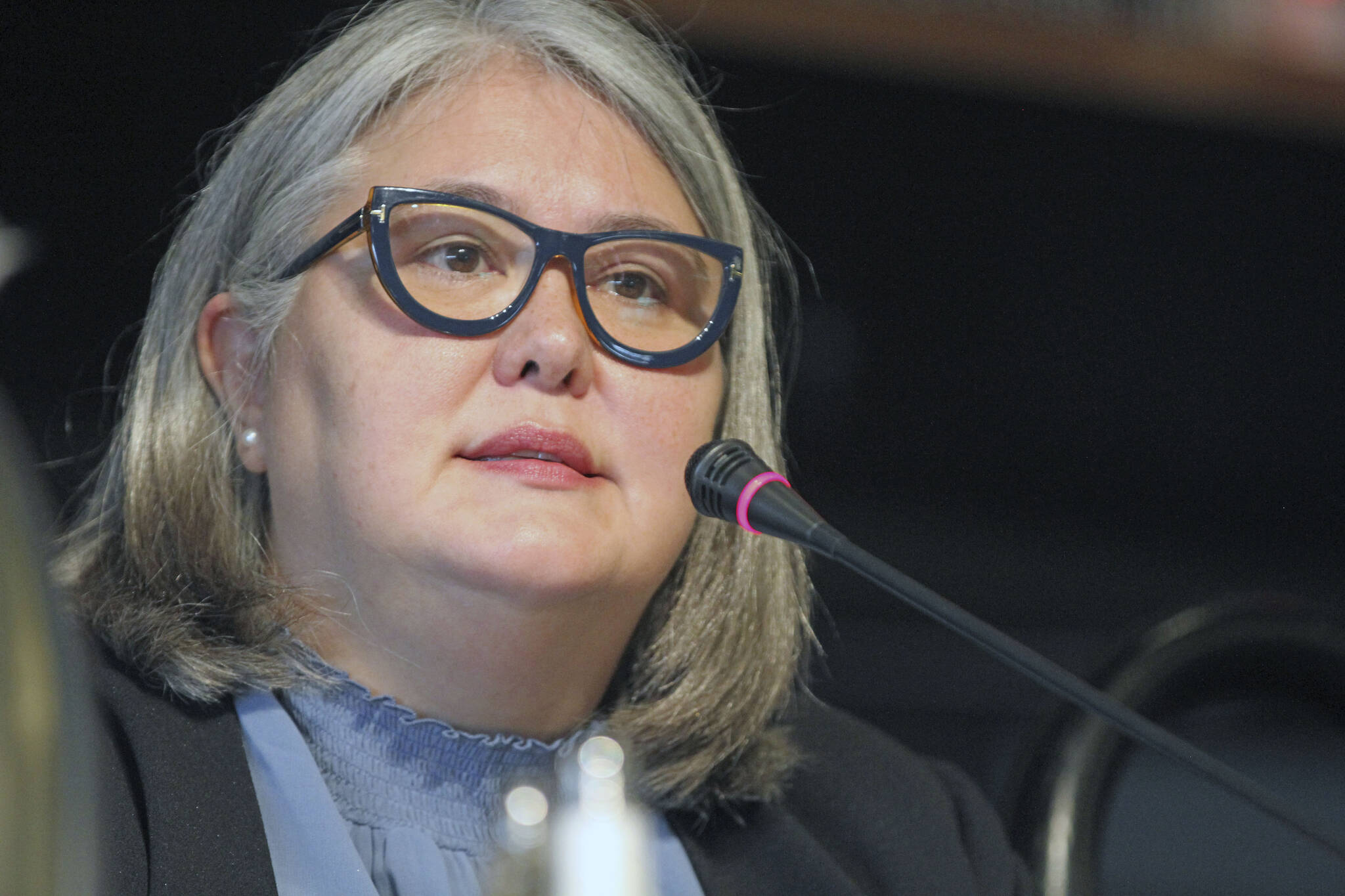By Becky Bohrer
Associated Press
Republican Tara Sweeney’s campaign does not plan to sue over a finding released by Alaska elections officials that Sweeney cannot advance to the special election for U.S. House following the withdrawal of another candidate, Sweeney’s campaign manager said Wednesday.
“We made the decision that this is not a candidate fight,” Sweeney campaign manager Karina Waller said in an interview. “This is on the ranked choice voting procedures that the voters approved, and … this is not our fight.”
Independent Al Gross placed third in the June 11 special primary, behind two Republicans — former Gov. Sarah Palin and businessman Nick Begich — and ahead of Democrat Mary Peltola, a former state lawmaker. Gross, an orthopedic surgeon, was positioned to advance to the August special election as one of the top four vote-getters under a new open primary system. But late Monday, he suddenly announced plans to end his campaign.
Sweeney finished fifth in the vote count, completed Tuesday. State elections officials aim to certify the results by Saturday.
Gail Fenumiai, director of the Division of Elections, cited the timing of Gross’ withdrawal in saying that state law does not permit the fifth-place candidate to advance to the special election. Gross withdrew Tuesday, and because the withdrawal occurred less than 64 days before the election, the law does not allow the division to put the fifth-place finisher from the special primary on the special election ballot in his place, she said.
Fenumiai said the division would remove Gross’ name from the special election ballot.
She outlined the division’s position in a letter to an attorney for Begich’s campaign, which had sought clarification on the process.
Fenumiai said anyone who disagrees with the decisions should sue immediately. She said the division needs a final determination from the courts by Tuesday to print ballots and keep the special election on track.
Sweeney said she believes she should be moved into the fourth place position and that voters should have four candidates to choose from. She said the process has been confusing and expressed frustration with it.
This was the first election under a system approved by Alaska voters that ends party primaries and institutes ranked voting for general elections.
“If there are individuals who feel … like they want to litigate this, that’s their prerogative and it will be decided by the courts,” she said.
“I simply just disagree with limiting the choices for voters, and so if there is a change in the decision, either by the Division of Elections or the courts, and I am afforded the opportunity to fill that fourth-place spot, I will be in it until the end and I will fight for Don Young’s seat. But right now, I’m currently in fifth,” she said.
Alaska’s only House seat was held for 49 years by Republican Rep. Don Young, who died in March.
Kim Reitmeier, president of ANCSA Regional Association, which represents leaders of Alaska Native regional corporations, released a statement Wednesday on behalf of the third-party group the association set up to support Sweeney’s candidacy.
“At present we are reviewing this dynamic situation, but at this time we have no plans to sue the Division of Elections,” she said.
Sweeney served as an assistant secretary of Indian Affairs in the U.S. Interior Department during the Trump administration. She also was previously an executive with Arctic Slope Regional Corp.
Begich’s campaign manager, Truman Reed, in a statement said the law “must be strictly adhered to” and that the Begich campaign agrees with the Division of Elections’ determination.
Sweeney said it was “par for the course for Nick Begich to want to limit choices for Alaskans.”
The Palin and Peltola campaigns did not immediately respond to messages seeking comment.
The special election will feature ranked voting and determine who will serve out Young’s term.
The August regular primary and November general election will determine who will serve a new, two-year term, starting in January.
Waller said the Sweeney campaign has not made a final decision on whether to pursue a run in the regular primary.
The withdrawal deadline for that primary is Saturday. Several candidates have dropped out, including Gross and Republicans John Coghill and Josh Revak. Democrat Christopher Constant’s campaign last week said he intended to withdraw.

